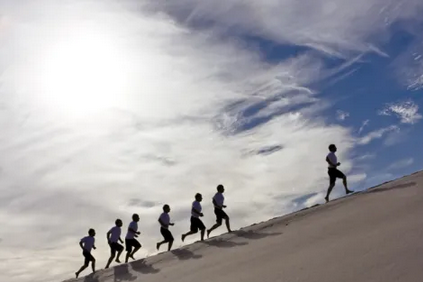Rav. Sacks z”l Beginning the Journey & Rav Kook z”l Becoming Heroes of Kindness
Rabbi Jonathan Sacks z”l
Jonathan Sacks z”l – Beginning the Journey Chayei Sarah 5781
|
RAV KOOK ON PARSHAT CHAYEI SARAH: BECOMING HEROES OF KINDNESS

“וְאַבְרָהָ֣ם זָקֵ֔ן בָּ֖א בַּיָּמִ֑ים וַֽה’ בֵּרַ֥ךְ אֶת־אַבְרָהָ֖ם בַּכֹּֽל- Avraham was now old, advanced in years, and YHVH blessed Avraham with everything.” (Breishit 24:1)
Chayei Sarah begins with the passing of Sarah Imenu and documents the transition from the generation of Avraham and Sarah to Yitzchak and Rivkah.
Rabbi Avraham Yitzchak HaCohen Kook ZT’L explains the unique nature of each generation and their relationship with each other.
In 1916 in Switzerland Rav Kook wrote: “The kindness of Avraham extends to everyone in the world…The Holy One therefore brought forth the priesthood from Avraham – ‘You are a priest forever.(Tehillim 110:4)’ (Notebook 7:166)
And therefore: “The righteous of the world in every generation must cleave to the qualities of Avraham so that their kindness will extend to all. They find the good in every situation ‘and the Torah of kindness is upon their lips(based on Mishlei 1:26)’” (Notebook 1:444)
The teachings of Kabbalah explain that Avraham and Sarah epitomized Chesed/Kindness- their tent was open on all four sides reaching out to everyone who came by.
Yitzchak and Rivka represented Gevurah/Strength. How so?
Rav Kook explains: “It is necessary to drive out, to remove and abolish with full force and strength- everything that prevents the light of great kindness from appearing in the world upon all the deeds, all the creatures, all the forms, all the worlds.
The might of this great kindness shines splendidly through the higher strength, the gevura/strength of Yitzchak. This strength is filled with an elevated chesed/kindness…which desires to spread and strengthen.” (Notebook 6:163)
Rivka’s first and defining actions in this parsha is to actively respond to Avraham servant Eliezer’s request for water by quickly giving him water and then running to the well to bring more water for his camels.
Rav Kook explains that her decisive actions displayed active strength: “Rivkah…manifested actual kindness in the framework of practical strength.” (Ibid)
And thus Yitzchak and Rivkah provide “a fitting blend of idealistic strength [Yitzchak] and practical strength [Rivkah].
Inside of them the light of the elevated kindness shines with all its powerful splendor. This will allow the house of Israel to fully prepare the world…” (Ibid)
What can we learn from this?
We are required to be very strong to ensure that kindness is the dominating force in our lives. We must be willing to act powerfully against anything that is preventing kindness. We can not let forces of selfishness and cruelty determine human reality.
In ‘Midot HaRayah’Rav Kook’s masterwork on the moral principles he emphasizes that: “it is the destiny of Israel to serve toward the perfection of all things. This must be expressed in practical action, by pursuing the welfare of all…seeking their advancement…
It is because of this perspective on life that we are concerned for the fullest progress to prevail in the world, for the ascent of justice, merged with beauty and vitality, for the perfection of all creation, commencing with humankind…
Though our love for humanity must be all-inclusive, embracing the wicked as well, this in no way blunts our hatred for evil itself; on the contrary it strengthens it. For it is not because of the dimension of evil clinging to a person that we must include them in our love, but because of the good in them, which our love tells us is to be found everywhere.
And since we detach the dimension of the good to love them for it, our hatred for evil becomes unblunted and absolute…Thus we can reach a state where the world is judged by ‘righteousness and nations by equity’ (Ps. 98:9)” (Midot HaRayah: Love)
For tikun olam/world repair to actually occur, the forces of evil and selfishness must be disempowered. We must become gibborei chesed -powerfully heroic forces to ensure that kindness rules the world.
And then we will truly be the children of Avraham and Sara and Rivka and Itzchak.
Bimhera Be’Yamenu-Quickly In Our Days.
————————————————————————
Prepared by Rabbi Itzchak Evan-Shayish, haorot@gmail.com , www.haorot.com .









